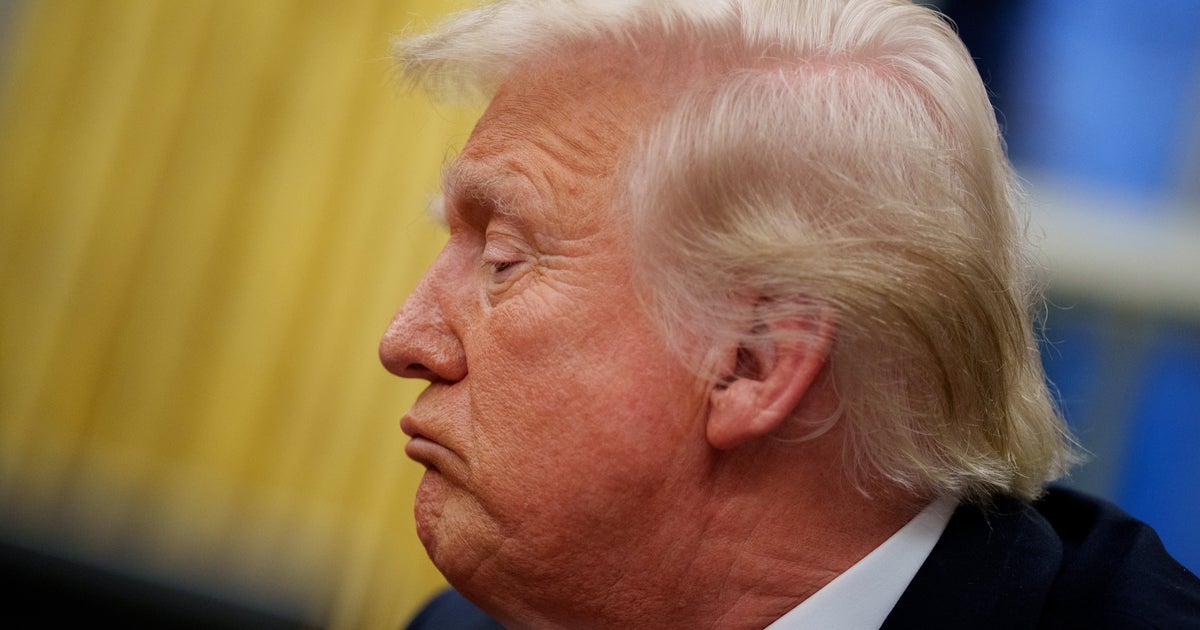Fraudster-In-Chief On A Pardon Spree Of His Fellow White-Collar Criminals

WASHINGTON — Donald Trump was convicted of falsifying business records and found civilly liable for a half billion dollars in fraud last year, and now, as president, has in recent days been on a spree of pardoning fellow fraudsters.
On Thursday, Trump pardoned Arthur Hayes, Benjamin Delo and Samuel Reed, who had pleaded guilty in 2022 to violating an anti-money-laundering component of the Banking Secrecy Act with their BitMEX cryptocurrency exchange.
Advertisement
On Friday, he pardoned Ozy Media CEO Carlos Watson, who was literally en route to prison following a financial conspiracy conviction, as well as electric truck CEO Trevor Milton, who was free on bail pending his appeal but facing four years in prison and hundreds in millions of dollars in restitution for defrauding his shareholders.
“They went after him. They went after his family, they went after his businesses,” Trump told reporters in the Oval Office Friday. “They say the thing that he did wrong was he was one of the first people that supported a gentleman named Donald Trump for president.”
It is unclear what Trump meant by “support.” A HuffPost analysis of Federal Election Commission records found that while Milton has donated just under $2 million to Trump’s campaign and related committees since he first ran in 2016, all but $3,500 of those donations came after Milton started facing legal trouble. What’s more, Milton’s first donation to Trump came at the end of July 2016 ― months after Trump had locked down the Republican nomination.
Advertisement
The White House did not respond to a HuffPost query about why Trump was suddenly pardoning white-collar criminals.
“The pardon power is problematic in the best of times,” said Gregg Nunziata, executive director of the Society for the Rule of Law. “It’s even more problematic in the hands of a president seemingly contemptuous of the rule of law.”
One Trump adviser, who spoke on condition of anonymity, said while he believed Trump was unfairly targeted by a “weaponized” Justice Department over the past four years, that does not mean that every prosecution is similarly baseless.
Advertisement
“Now every criminal is going to say they were a victim of weaponization,” he said.
While Trump and his allies claim that the Justice Department unfairly targeted him while predecessor Joe Biden was president, the federal prosecutions Trump faced were based on his own actions.
One federal case charged Trump with conspiracy and fraud stemming from his Jan. 6, 2021, attempted self-coup to remain in office despite losing the 2020 election. The second resulted from Trump’s refusal to turn over the secret documents he took with him to his Florida country club upon leaving office.
Both of those cases were dismissed after Trump won the November election because of the DOJ’s longstanding policy not to prosecute a sitting president.
Advertisement
Trump last year, however, was both convicted of felonies and found liable in a New York State civil fraud case.
A New York city jury found Trump guilty on 34 felony counts of falsifying business records to hide a $130,000 hush money payment to a porn star in the days ahead of the 2016 election.
In a separate case decided after a non-jury trial, Trump must, unless he wins his appeal, pay New York State a half-billion dollars in fines and interest for years of fraudulent business practices with his real estate holdings.
Advertisement
Trump on his first day in office pardoned nearly 1,600 of his supporters who were charged in the Jan. 6 attack on the U.S. Capitol, including some 400 who were convicted of assaulting police officers. The following day he pardoned Ross Ulbricht, the founder of the Silk Road website designed to facilitate the sale of drugs and other contraband using cryptocurrency, releasing him from a life prison sentence.
The latest batch of pardons are for actions more akin to Trump’s own personal history.
Milton, for example, was charged with defrauding investors in his electric truck by, among other things, putting his own logo on a General Motors vehicle and then creating a deceptive video appearing to show it under power when in reality it was just rolling downhill.
That stunt is reminiscent of one Trump pulled four decades earlier. In the 1980s, trying to assuage a nervous investor in one of his casino projects in New Jersey, Trump had his construction crews push dirt around during his visit to make it appear as if the project was proceeding along, when in fact it was not.
Advertisement
“What the bulldozers and dump trucks did wasn’t important, I said, so long as they did a lot of it,” he boasted in his book “The Art of the Deal.”
Milton was being represented by Brad Bondi, brother of Trump’s attorney general Pam Bondi.
Neither the White House nor the Justice Department responded to HuffPost queries about whether she lobbied for Milton’s release.
We Don’t Work For Billionaires. We Work For You.
Already contributed? Log in to hide these messages.
“The president does seem to have a special hostility to the criminal justice system holding white-collar criminals to account,” Nunziata said.
Advertisement

Comments are closed.